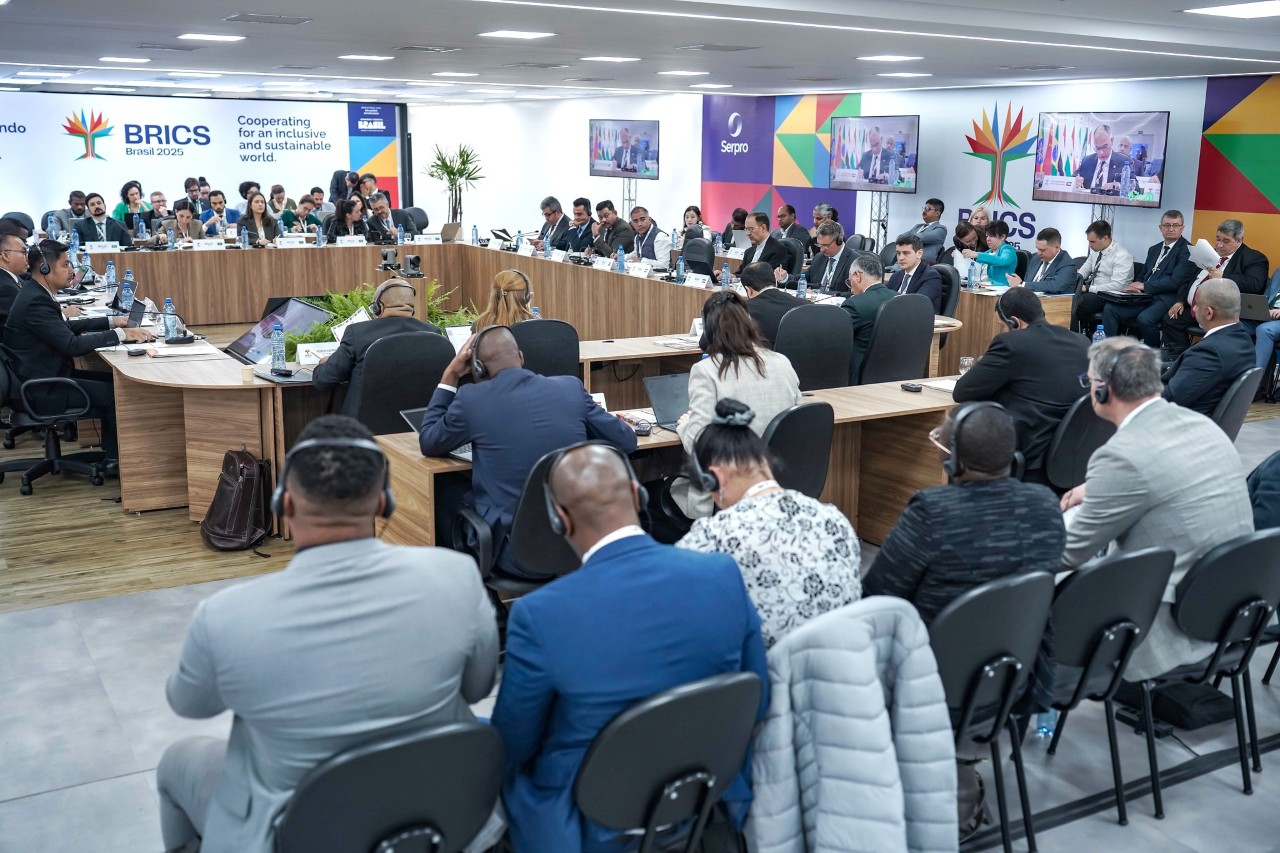Use of Artificial Intelligence and Social Media by Terrorist Groups Raises Concerns Among BRICS Nations
The BRICS Counterterrorism Working Group, led by ABIN, Brasil’s Intelligence Agency, advocates for cooperation in capacity-building to address violent extremism

By ABIN | Ascom
The growing use of new internet technologies for terrorist purposes has prompted BRICS member states to push for updated response mechanisms. Meeting in Brasilia on Thursday, June 5, the bloc’s Counterterrorism Group — coordinated by Brasil’s Intelligence Agency (ABIN) — advanced discussions aimed at ensuring that member countries are better equipped to confront terrorism proactively and preventively.
Terrorist organizations around the world are exploiting artificial intelligence, the deep web, social media platforms, and online gaming to spread disinformation and propaganda that promotes terrorism. Confronting these evolving threats requires adapting response mechanisms and investing in collective capacity-building, in line with the recommendations of the BRICS Working Group.
Brasil and Ethiopia are leading the subgroup on capacity-building for counterterrorism education. During the meeting, Anna Cruz, Director of ABIN’s Intelligence School, outlined a range of training and course opportunities. “We hope this BRICS cycle will introduce new tools for capacity-building that strengthen cooperation and deepen our understanding of this threat. In the coming years, we aim to build greater resilience against terrorism and violent extremism,” the director said.
Threat Prevention Protocol
During a session on best practices, ABIN presented its newly launched Threat Prevention Protocol for Violent Extremism to BRICS member states, positioning it as a tool for international cooperation. The document offers a strategic assessment of the threat landscape and sets out preventive and responsive measures to counter violent extremism.
Bárbara Requião, Acting Director of ABIN’s External Intelligence Department, emphasized that the initiative’s core objective is to prevent potential acts of violence. She pointed to the rise in school attacks in Brasil in recent years — fueled by violent and transactional subcultures online — as a case in point. “The protocol allows Brazilian institutions to raise alert levels and standardize procedures to improve response efforts. It also distinguishes extremist threats from other forms of violence,” she said. On the international front, she noted that various forms of extremism share common characteristics across multiple dimensions.
Counterterrorism Working Group
The 10th Meeting of the BRICS Counterterrorism Working Group will take place until 6 June in Brasilia, under the auspices of Brasil’s Presidency of BRICS in 2025. BRICS is a bloc comprising eleven member states: Brasil, Russia, India, China, South Africa, Saudi Arabia, Egypt, the United Arab Emirates, Ethiopia, Indonesia, and Iran. It serves as a forum for political and diplomatic coordination among Global South nations and fosters cooperation across multiple sectors.
English version by Michel Emmanuel Félix François (POET/UFC)
Proofreading by Judas Tadeu de Azevedo Neto (POET/UFC)